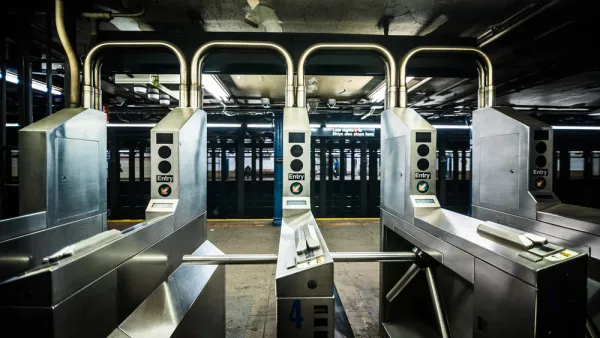Project for Public Spaces' Market Cities Initiative seeks to understand and addresses challenges faced by the public marketplaces to improve market infrastructure and promote healthy food systems in local communities.

In a partnership with Healthbridge and Slow Food, Project for Public Spaces (PPS) kicked off the Market Cities Initiative with citywide strategies in three major metropolitan areas, working remotely with stakeholders in Pittsburgh, Seattle, and Toronto to better understand the importance of sustainable public marketplaces and to support communities by way of developing localized market networks.
The PPS strategy seeks to address the many threats faced by public markets and the economies that house them. "These constant and immediate threats include increasing urban development and value of real estate; the modernization and centralization of food systems; economic development practices that neglect women, minority populations, and other small entrepreneurs; and the lack of management capacity of the markets themselves," say PPS officials.
PPS worked in February to gather data about challenges faced by public markets through a Market Cities Survey that collected initial responses from more than 60 cities worldwide. Survey participants reported a lack of communication between market managers in their area. The next step in the strategy: Inventory and map market networks and conduct online forums to connect market operators and city officials.
Given the uncertainty of U.S. markets' ability to operate in the near future, PPS will keep watch over government, police, and investor responses as they continue to move forward with the project.
FULL STORY: KICKSTARTING MARKET CITY STRATEGIES IN PITTSBURGH, SEATTLE & TORONTO

National Parks Layoffs Will Cause Communities to Lose Billions
Thousands of essential park workers were laid off this week, just before the busy spring break season.

Retro-silient?: America’s First “Eco-burb,” The Woodlands Turns 50
A master-planned community north of Houston offers lessons on green infrastructure and resilient design, but falls short of its founder’s lofty affordability and walkability goals.

Delivering for America Plan Will Downgrade Mail Service in at Least 49.5 Percent of Zip Codes
Republican and Democrat lawmakers criticize the plan for its disproportionate negative impact on rural communities.

Test News Post 1
This is a summary

Test News Headline 46
Test for the image on the front page.

Balancing Bombs and Butterflies: How the National Guard Protects a Rare Species
The National Guard at Fort Indiantown Gap uses GIS technology and land management strategies to balance military training with conservation efforts, ensuring the survival of the rare eastern regal fritillary butterfly.
Urban Design for Planners 1: Software Tools
This six-course series explores essential urban design concepts using open source software and equips planners with the tools they need to participate fully in the urban design process.
Planning for Universal Design
Learn the tools for implementing Universal Design in planning regulations.
EMC Planning Group, Inc.
Planetizen
Planetizen
Mpact (formerly Rail~Volution)
Great Falls Development Authority, Inc.
HUDs Office of Policy Development and Research
NYU Wagner Graduate School of Public Service




























